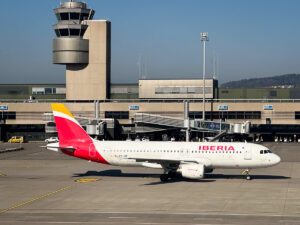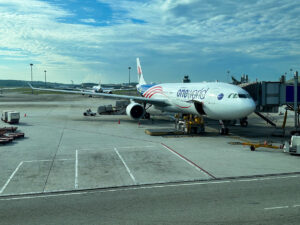
Work has begun on a brand new, $900 million-dollar international airport near Machu Picchu in Peru’s Sacred Valley. The new Chinchero International Airport is designed to make it easier for overseas tourists visiting Machu Picchu. But there are serious concerns that the airport could cause disastrous unintended consequences.
Chinchero Airport will be built in the Sacred Valley, 29km from Cusco near the town of Urubamba. The airport will be capable of handling 5 million passengers per year when it opens in 2023, and will be designed to eventually serve 8 million annual passengers. Cusco’s existing Alejandro Velasco Astete International Airport (CUZ) currently serves around 3.5 million passengers per year and is close to capacity.
The new airport is closer to Machu Picchu than Cusco’s current airport (which is set to close when the new airport opens). More significantly, larger international aircraft will be able to fly to Chinchero Airport. This could see the introduction of new direct international flights to Cusco, including from the United States and major cities across South America.
Cusco Airport currently has very few international flights. There is a LATAM Airlines A320 service to Santiago that operates a few times per week and happens to connect well to Qantas’ Sydney-Santiago flight. But the vast majority of passengers need to first fly to Lima and then pick up a domestic flight to Cusco – which can admittedly be quite expensive.
Cusco’s airport is not able to handle larger aircraft due to its relatively short runway, high altitude and mountainous terrain. Poor visibility also limits the airport’s operations some afternoons and during the night. In addition, the airport is located right in the centre of the city of Cusco – so expansion is not really an option.
Cusco is located around 80km from Machu Picchu. The mountainous terrain makes it impossible to access Machu Picchu – or the nearby base town of Aguas Calientes – by road or the air. Instead, visitors to Machu Picchu generally fly to Cusco and then take a series of buses and trains to Aguas Calientes. Chinchero Airport won’t change this, although it will be closer to Machu Picchu – allowing tourists to bypass Cusco.
The Peruvian economy relies heavily on tourism, and Machu Picchu is the county’s number one drawcard. The new Machu Picchu airport is designed to make it easier for tourists to get to Machu Picchu, which could be beneficial to Peru’s economy in the short-term and create new jobs in the Sacred Valley.
Yet, there are already too many visitors to Machu Picchu. To preserve the historical site, there is currently a limit in place of 2,500 visitors per day. This limit is already ignored and the actual number of daily visitors can be almost triple that during the peak season. Some warn that if Machu Picchu becomes even more overburdened by tourists, it could become damaged beyond repair.
Archaeologists and conservationists also fear that Chinchero Airport – to be built in the heart of Peru’s Sacred Valley – could cause irreparable damage to ancient Inca artefacts. But the Peruvian government insists that no artefacts were found on the actual site of the airport.
If Machu Picchu is on your bucket list, you should probably consider visiting before Chinchero Airport opens in 2023. It may take you slightly longer to get there, but that’s all part of the experience. Lima is a wonderful city with some of the world’s best restaurants, so it’s worth a stopover! Cusco and the Sacred Valley are also an integral part of the experience and have just as much to offer as Aguas Calientes and Machu Picchu itself.
Join the discussion on the Australian Frequent Flyer forum: New Machu Picchu airport















































































